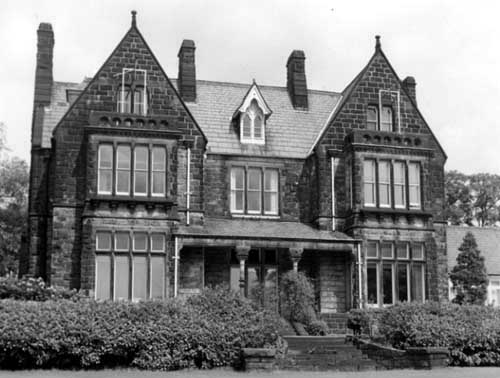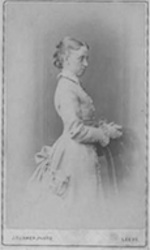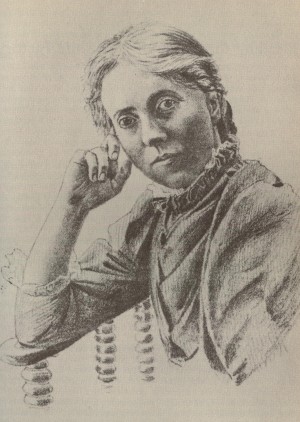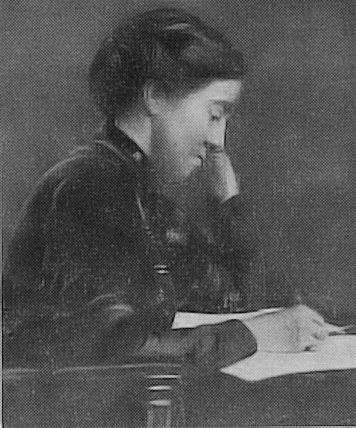Isabella Ford
You can read more about Isabella Ford here
Born in 1855, Isabella Ford was a hugely influential activist in the suffragist, Trades Union, political and pacifist movements. She was the youngest of eight children of Robert Ford, a Quaker solicitor, and Hannah Pease. Both her parents were social campaigners and her mother founded the first Leeds Women’s Suffrage Society. Isabella and her sisters grew up at Adel Grange.
Isabella became a member of the Fabian Society, and in 1885 helped form a Machinists’ Society for Leeds tailoresses. Two years later she worked with the Leeds Socialist League, assisting in industrial disputes. In 1889 she was instrumental in setting up the Leeds Tailoresses’ Union, becoming its President and addressing large meetings as well as being active in its strike.
Isabella was a founder member of the second Leeds Women’s Suffrage Society, and also joined the Women’s Emancipation Union, which encouraged women to stand for election to local administrative bodies: she became a parish councillor for Adel-cum-Eccup.
As well as being a founder member of the Independent Labour Party, she was active in many other areas, as well as a published novelist, and oversaw the Leeds Women’s Suffrage Society becoming part of the new National Union of Women’s Suffrage Societies in 1898.
As a Quaker, she addressed peace meetings across the West Riding, often to hostile crowds, voicing opposition to the Boer War.
In 1902, Isabella organised the Yorkshire & Cheshire Women Textile Workers suffrage petition. 33,184 female textile workers in Yorkshire signed, and she travelled to London with the delegation to present it to Parliament. That evening she spoke at a public meeting organised by Keir Hardie.
The Independent Labour Party published her pamphlet Women and Socialism in 1904.
Isabella Ford lived until 1924, remaining an important political force for the rest of her life. Throughout the First World War she worked as a peace campaigner, and resigned from Executive Committee of the National Union of Women’s Suffrage Societies when it refused to support a delegation to the Women’s Peace Congress at The Hague.





